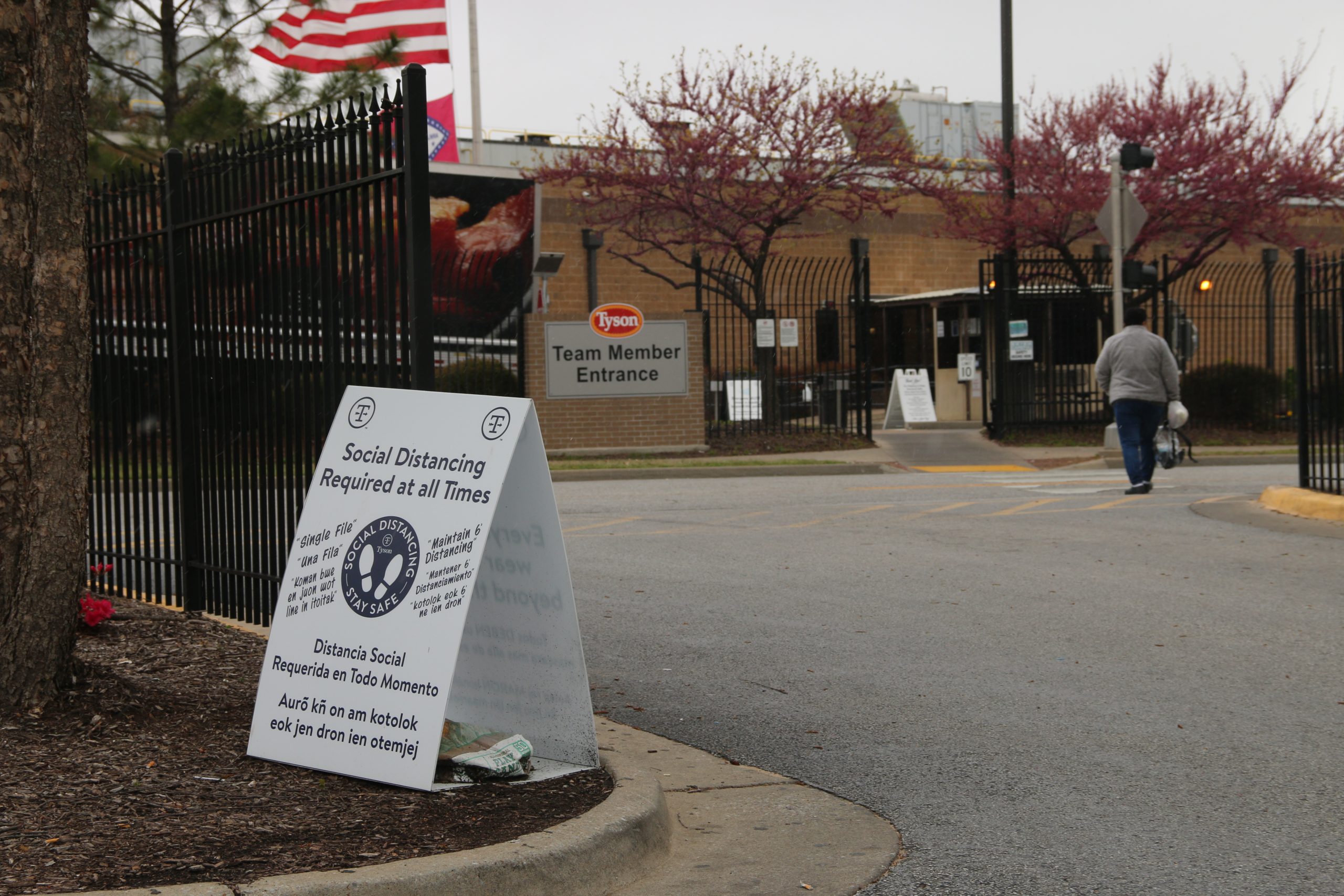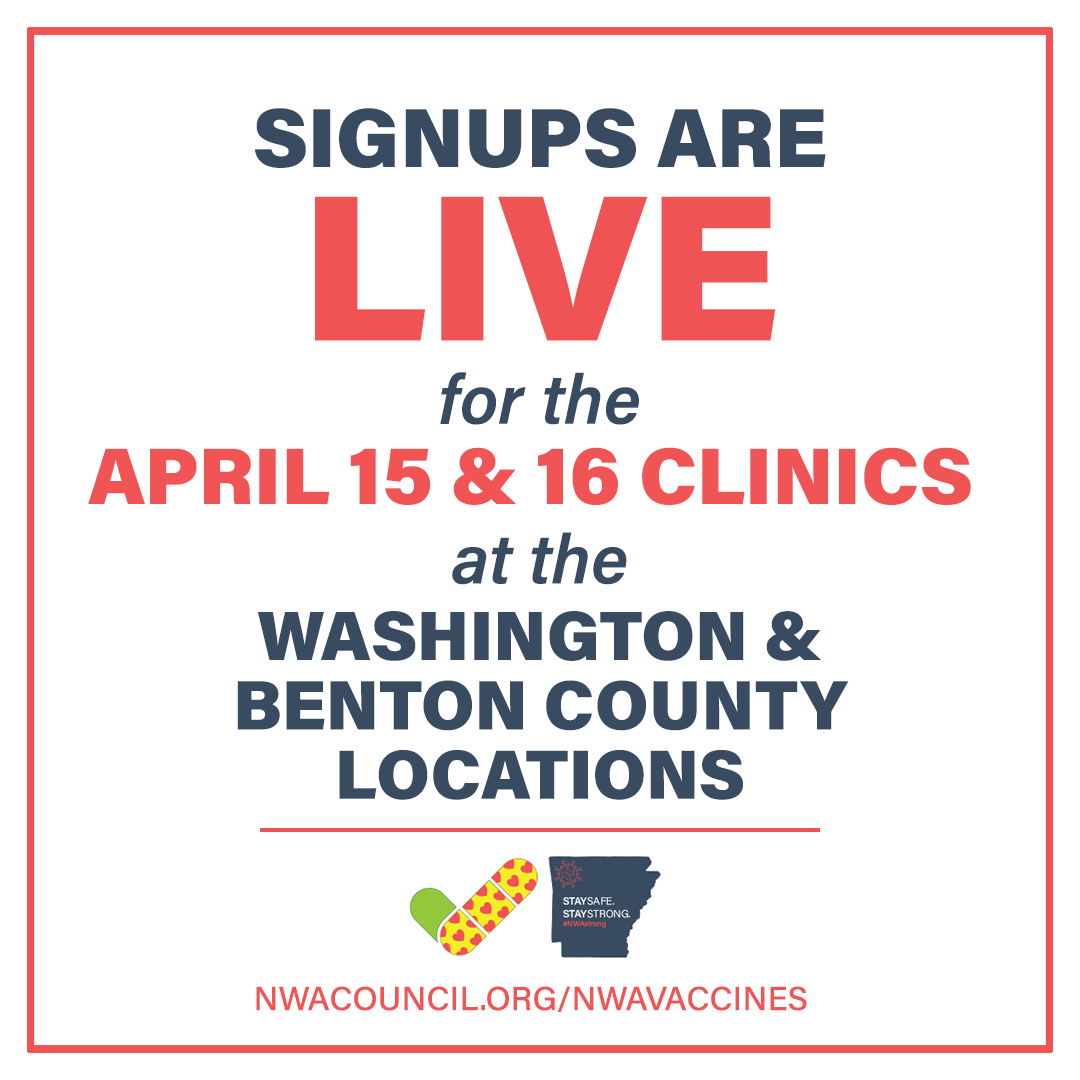Local news
At least 9,000 Arkansas workers caught COVID-19 as pandemic overwhelmed regulators, companies
Published
3 years agoon
Editor

SPRINGDALE, Ark. – Poultry giant Tyson Foods Inc., the third-largest employer in Arkansas, reported 2,866 COVID-19 cases at its workplaces, nearly one-third of the state’s 9,065 sickened workers across all industries from May 19, 2020, to April 8, 2021, according to an Arkansascovid.com analysis of Arkansas Department of Health data.
The state health department publishes COVID-19 occupational illness reports that show businesses with five or more active cases. In less than one year, Tyson had 281 appearances in these reports. Comparatively, Walmart Inc., the largest employer in the state, had two appearances that totaled 12 sick workers.
Of Tyson’s 21 major locations in Arkansas, four have not appeared in state health department occupational reports during the pandemic. Near the company’s headquarters in northwest Arkansas, the Tyson location on Berry Street in Springdale reported 416 COVID-19 cases, the most of any company workplace in the data.
In working conditions that stress a quick turnaround on products, have close contact between employees and brisk temperatures, workers told Arkansascovid.com they were put at risk for catching the virus. Some workers said they were afraid to go to work, but remained stuck in a financial situation that made it hard for them to leave. Legal-aid attorneys and worker-advocacy groups said the state regulatory structure was overwhelmed by the pandemic. That, combined with a weak union presence, led to a failure to provide adequate protections for struggling workers, they said.
“We got a fair number of calls from workers who were really worried about going back to an unsafe working condition,” said Kevin De Liban, director of advocacy for Legal Aid of Arkansas. De Liban said the state does not have many protections for low-wage workers, which has led to employers taking advantage of their staff.
The 9,065 reports of worker COVID-19 cases are about 3% of the 334,998 positive cases in Arkansas reported from the beginning of the pandemic through April 27, 2021. However, virus cases in the workplace played a significant role in the story of COVID-19 in Arkansas, as the virus has killed more than 5,700 people. Workplace outbreaks were the main indicator of the pandemic’s severity in the state, said Ben Amick, associate dean of research and a professor of epidemiology at the University of Arkansas for Medical Sciences.
“Arkansas had a different experience with the epidemic than a lot of other states,” Amick said. “Early outbreaks were in workplaces or in long-term care facilities.”
In the broader community, COVID-19 cases in Arkansas grew exponentially starting in October, which overshadowed workplaces and led to “uncontrolled spread in the community,” Amick said.
Interviews with workers and advocacy groups revealed a fear of balancing the need to make a living against possible virus exposures in the workplace.
“It’s not easy to see so many of your coworkers become sick and know that some of them have even died,” said a worker for Tyson’s Chick-N-Quick in Rogers, Arkansas. The worker, who spoke in Spanish, did not want to be identified due to concerns of possible workplace retaliation.
This worker has spent the last year working with the fear of potentially infecting their family, and their situation is similar to eight other Arkansas employees interviewed for this story. Every poultry employee Arkansascovid.com interviewed said their workplace’s management did not formally tell them about sick coworkers.
“It’s sad and difficult because you don’t know if the next person is going to be you or bring the sickness home with you, and then possibly infect your wife and children,” the Chick-N-Quick worker said. “The company has honestly done nothing, nor do they care.”
Workers agreed that lack of communication concerning sick colleagues has been a problem, but there were varying opinions about the companies’ overall pandemic control. Some workers expressed support for the efforts to contain the virus made by Tyson and other companies.
“But I think Tyson, all in all, they [were] up front with us about everything, they didn’t hide anything from us,” said Debra Marsh of Texarkana, Texas, who has worked at the Tyson facility in Hope, Arkansas, for 25 years.
Marsh, 59, said she has not feared going to work during the pandemic, in part because she doesn’t come into contact with many other workers in her position and was comfortable with the protocols Tyson put in place.
Throughout the pandemic, management at the Tyson location in Hope implemented random COVID-19 testing. Marsh said she was tested twice, and both results were negative. The company also provided Marsh with a Johnson & Johnson vaccine on March 26.
Interviews with workers and advocacy groups revealed a fear of balancing the need to make a living against possible virus exposures in the workplace.
“It’s not easy to see so many of your coworkers become sick and know that some of them have even died,” said a worker for Tyson’s Chick-N-Quick in Rogers, Arkansas. The worker, who spoke in Spanish, did not want to be identified due to concerns of possible workplace retaliation.
This worker has spent the last year working with the fear of potentially infecting their family, and their situation is similar to eight other Arkansas employees interviewed for this story. Every poultry employee Arkansascovid.com interviewed said their workplace’s management did not formally tell them about sick coworkers.
“It’s sad and difficult because you don’t know if the next person is going to be you or bring the sickness home with you, and then possibly infect your wife and children,” the Chick-N-Quick worker said. “The company has honestly done nothing, nor do they care.”
Workers agreed that lack of communication concerning sick colleagues has been a problem, but there were varying opinions about the companies’ overall pandemic control. Some workers expressed support for the efforts to contain the virus made by Tyson and other companies.
“But I think Tyson, all in all, they [were] up front with us about everything, they didn’t hide anything from us,” said Debra Marsh of Texarkana, Texas, who has worked at the Tyson facility in Hope, Arkansas, for 25 years.
Marsh, 59, said she has not feared going to work during the pandemic, in part because she doesn’t come into contact with many other workers in her position and was comfortable with the protocols Tyson put in place.
Throughout the pandemic, management at the Tyson location in Hope implemented random COVID-19 testing. Marsh said she was tested twice, and both results were negative. The company also provided Marsh with a Johnson & Johnson vaccine on March 26.
Data was collected from contact tracing and business reporting of positive COVID-19 cases, although companies were not legally required to report sick workers, he said. The state health department data does not include occupational COVID-19 deaths. Arkansascovid.com reporters used the R data analysis software to extract and compile details from the 80 separate reports, producing previously unreleased details about the scale of the pandemic.
Despite worker concerns and thousands of illnesses, few workers complained to the Occupational Safety and Health Administration, the federal agency that oversees workplace safety. From March 16, 2020, to Feb. 9, 2021, eight poultry industry complaints concerning COVID-19 were filed, four of which involved Tyson. During that time, there were 106 total complaints filed in Arkansas.
Wayne Farms LLC, a poultry plant in Danville, Arkansas, first appeared in the state health department data June 2, 2020, with 10 total cases. From June to its last appearance in December, Wayne Farms reported a total of 230 sick workers. A Wayne Farms spokesperson did not say whether these were individual cases. If they were, 30% of the company’s 771 employees got sick.
Wayne Farms spokesperson Frank Singleton objected to that percentage as inflated, saying it doesn’t factor in worker turnover, which he described as “massive” in the poultry industry. He did not provide details about the turnover rate, however.
Wayne Farms maintenance employee Willie Besinger tested positive for the virus in December 2020. Besinger said he believed he contracted COVID-19 while on a smoke break with a coworker at the Yell County poultry plant, but he said he still feels safe at work.
Besinger praised Wayne Farms for its response and for taking the pandemic seriously. “They kind of stepped up, and they [did] what was needed,” he said.
After Besinger tested positive for COVID-19 in December, he stayed home from work and was paid for his time spent in quarantine. Besinger said his only concern was the workers weren’t informed about positive COVID-19 cases at the plant.
Singleton said Wayne Farms provides workers with personal-protective equipment, sanitizing stations and dividers to help workers socially distance and protect themselves from contracting COVID-19. Singleton said he believes his company has done “a phenomenal job.”
Additionally, Wayne Farms’ management took steps during the pandemic, such as daily infrared temperature checks for employees and visitors, analyses of worker outbreaks to determine employees who may have been exposed and/or otherwise tested positive for COVID-19, and paid time off to employees who are directly exposed to the virus during their 14-day quarantine period.
Although Besinger said he feels safe, a line worker at Wayne Farms said he was scared of going to work, contracting COVID-19 and spreading it to his 63-year-old spouse and 13-year-old granddaughter at home.
“My biggest fear is bringing this stuff home to my family, and they don’t care about stuff like that,” said the Wayne Farms worker, who did not want to be identified due to concerns of possible workplace retaliation. “Wayne Farms cares about one thing, and that’s getting that chicken out of that truck and into the packages and sent off. That’s all they care about.
“They didn’t want to go any farther than what they had to. What [the] CDC [Centers for Disease Control and Prevention] said they had to do, that’s what they did, and they didn’t try to make it any safer for us.”
The Arkansas Department of Health occupational reports show employment, but provide no details about how workers contracted the virus. Singleton, the Wayne Farms spokesperson, suggested some of these workers could have contracted the virus outside the workplace.
“The data, when applied against a workplace, is only a fraction of a person’s actual existence,” he said.
In the early months of the pandemic, the CDC did an investigation that found Arkansas state officials were not providing minority communities with adequate COVID-19 information in their languages, leading to a disproportionate impact. The Arkansas Hispanic community had the second-highest rate of COVID-19 infection among race and ethnic groups with 1,592 cases per 10,000 population as of April 27, 2021, according to the state health department.
About one-third of the poultry workers in Arkansas were Hispanic, according to a 2016 Northwest Arkansas Workers’ Justice Center report. Many members of that community became infected during summer 2020, when overall occupational illnesses first peaked.
In June, state health data showed 1,906 infected workers, about 14% of the total 13,524 new cases statewide. Worker cases dropped to 1,459 in July, or 7% of the statewide new cases. Worker cases waned after July and through the fall, but rose again in December during the worst of the pandemic. Even then, the 1,497 worker cases in December were 2% of the state’s total positive cases that month.
Similar to Wayne Farms, poultry producer George’s implemented basic safety protocols, such as mask wearing and plastic dividers between workstations. As of 2021, George’s had about 7,000 employees across all locations and is overshadowed by Tyson, the nation’s largest meat producer. Still, George’s reported 704 sick workers for the second-most cases in Arkansas COVID-19 data, according to the Arkansascovid.com data analysis.
George’s workers said they worried about contracting COVID-19 because social-distancing measures were not enforced at their workplace. A worker at a George’s plant in Springdale, whose name was withheld due to concerns about retaliation, shared the same sentiment about the lack of social-distancing protocols, especially during shift changes. Social-distancing measures are difficult to adhere to when employees are crowding around time clocks, the George’s worker said.
“I would estimate that by the time I enter, around 7 in the morning, there are about 200 workers,” the George’s worker said.
Facing South magazine reported that in early December, George’s management promised to add more time clocks to resolve these issues after workers raised concerns following a walkout at a Springdale facility.
“They kept talking about those promises, but nothing has been fulfilled,” the George’s plant employee said. “They promised more handwashing stations, and they have done nothing. They promised they were going to put more time clocks so people wouldn’t crowd, and they haven’t done anything either.”
Another George’s worker expressed similar concerns about worker safety.
Arkansascovid.com attempted to contact George’s multiple times, but the company did not respond to a request for comment.
Although low-wage workers are supposed to be shielded from retaliation under federal protected concerted activity standards, it does not mean the employers follow those standards, oftentimes leaving workers afraid to address safety concerns, De Liban said.
“A lot of times, low-wage workers are in such precarious situations, they know that they’re not going to speak up, or it’s going to be dangerous to speak up,” De Liban said.
There is little financial incentive for private attorneys to take labor law cases for low-wage workers, which leaves one Legal Aid attorney in Arkansas to represent thousands of workers, De Liban said.
“For every one Legal Aid attorney, there are 18,000 financially eligible clients,” De Liban said.
Low incentive combined with violations led low-wage workers to feel economic insecurity. As a single father of two teenagers, a George’s worker said if he lost his job that he would only be able to survive financially for one month. His name was withheld due to concerns about workplace retaliation.
“There is a risk at work all the time,” the Springdale George’s worker said in Spanish.
“But you have to go to work.”
Arkansas poultry workers faced financial problems that compounded with the looming fear of the pandemic, a trend seen across several companies.
“Most of us have gone to work knowing that perhaps we are going to get infected,” a Tyson Chick-N-Quick worker told Arkansascovid.com in Spanish. “But we have no choice because the company has not helped us at all.”
The following University of Arkansas data journalism students contributed to this report: Haley Hale, Grayson Green, Ravi Brock, Caroline Sellers, Robert Stewart, Katy Seiter, Emma Dannenfelser and Graham Smithson; UofA associate professor Rob Wells edited and contributed. Carmen Molina Acosta from the Howard Center for Investigative Journalism also contributed.





